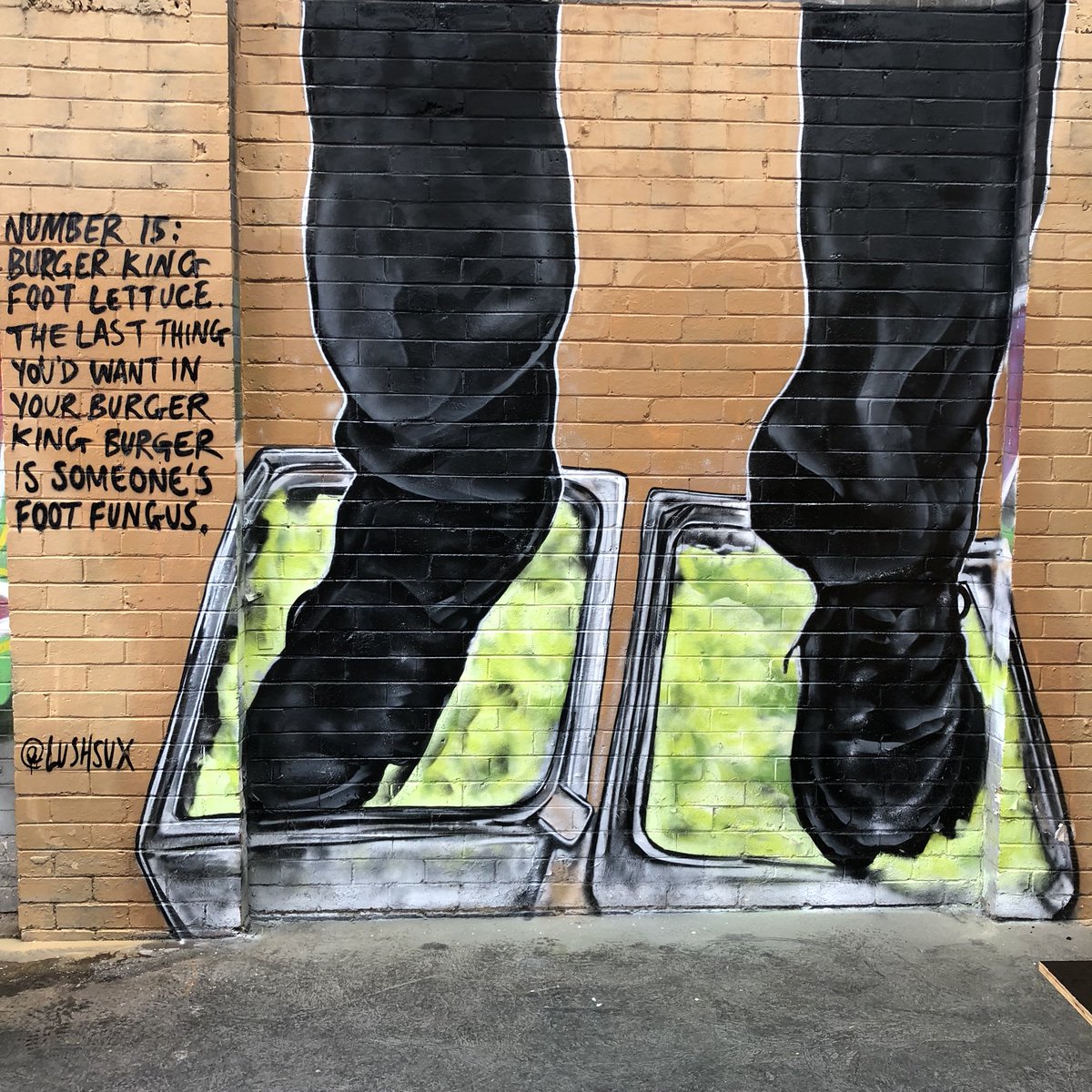The Curious Case of the Burger King Foot Lettuce: Exploring the Infamous Incident
Let’s be honest, the phrase “Burger King foot lettuce” evokes a certain visceral reaction. It’s a potent combination of words that conjures up unpleasant mental images and probably makes you rethink your next fast food meal. But beyond the initial disgust, this bizarre incident offers a fascinating glimpse into the power of social media, the anxieties surrounding food safety, and the vulnerabilities of large corporations in the digital age.
The story, as it unfolded online, centered around a photograph allegedly taken by a Burger King employee. This image purportedly depicted an individual standing with their shoes inside a bin of lettuce, the very same lettuce presumably destined for unsuspecting customers' burgers. The photo quickly went viral, sparking widespread outrage and disgust.
While the veracity of the original “Burger King foot lettuce” photo remains debated and its origins shrouded in some mystery, the impact was undeniable. It tapped into a pre-existing public concern about hygiene standards in fast food restaurants. Suddenly, the unseen back-of-house operations of these establishments became a subject of intense scrutiny and speculation. The incident became a cautionary tale, a modern-day urban legend whispering about the potential horrors lurking behind the smiling cashier and the brightly lit menu boards.
This incident highlighted the significant role social media plays in shaping public perception and holding corporations accountable. The rapid spread of the “Burger King foot lettuce” image, regardless of its authenticity, forced Burger King to address the situation publicly. This demonstrates the power of citizen journalism and the ability of online communities to amplify concerns and demand transparency.
The incident also underscores the vulnerability of companies in the face of viral online narratives. Even if the photograph was fabricated or misrepresented, the damage to Burger King's brand was real. It served as a stark reminder of how quickly a single image can erode public trust and negatively impact a company's reputation. The speed and reach of online platforms make it crucial for businesses to respond swiftly and effectively to such crises.
Although there aren’t any verifiable benefits to an incident like the “Burger King foot lettuce” situation, it did force a conversation around fast food hygiene practices. This renewed focus could potentially lead to improved standards and greater transparency in the industry. It also highlighted the importance of employee training and oversight in maintaining food safety protocols.
It's important to remember that incidents like these can often be misrepresented or exaggerated online. Critical thinking and fact-checking are essential when evaluating information shared on social media platforms. While the “Burger King foot lettuce” story may be unsettling, it ultimately serves as a valuable lesson about the power and potential pitfalls of the digital age.
Advantages and Disadvantages of the "Burger King Foot Lettuce" Incident's Impact
| Advantages | Disadvantages |
|---|---|
| Increased awareness of food safety practices | Damage to Burger King's brand reputation |
| Potential for improved industry standards | Spread of misinformation and potential exaggeration |
It is crucial to differentiate between the actual incident and the subsequent viral spread of related stories. There is no "Burger King foot lettuce original" in the sense of a positive concept to be implemented or replicated. Instead, the phrase represents a specific incident that sparked discussion about hygiene and the power of online information dissemination.
Frequently Asked Questions
1. Was the "Burger King foot lettuce" photo real? The authenticity of the original photo remains unconfirmed.
2. Where did the incident occur? The alleged incident's location is not definitively known.
3. What happened to the employee involved? Information regarding the alleged employee is scarce and often unreliable.
4. How did Burger King respond? Burger King likely addressed the incident publicly, although specifics are dependent on the specific incident referenced.
5. Did the incident lead to any changes in fast food regulations? There is no evidence of direct regulatory changes stemming from the incident.
6. What can consumers do to ensure food safety? Consumers can practice due diligence by choosing reputable establishments and reporting any concerns to management or relevant authorities.
7. Is it safe to eat fast food? Fast food, like any food, carries potential risks if not handled properly. Choosing restaurants with good hygiene practices is recommended.
8. How can misinformation be combatted online? Critical thinking, fact-checking, and relying on reputable sources are essential to combating online misinformation.
In conclusion, the “Burger King foot lettuce” narrative, whether based on a true incident or not, stands as a powerful symbol of our times. It highlights the potent combination of social media, food safety anxieties, and the constant scrutiny faced by corporations in the digital age. While the specifics of the original incident remain unclear, its impact on public perception and the broader conversation surrounding fast food hygiene is undeniable. This incident serves as a cautionary tale, reminding us of the importance of vigilance, critical thinking, and the need for transparency and accountability in the food industry. It also underscores the crucial role of social media in both amplifying voices and spreading misinformation, emphasizing the need for responsible online engagement and fact-checking. Ultimately, the "Burger King foot lettuce" story prompts us to consider the power of images, the narratives we construct around them, and the far-reaching consequences they can have in the interconnected world we inhabit.
Indulge your sweet tooth exploring the world of love is sweet chinese drama downloads
Boo tiful ink the rise of cute small ghost tattoos
Unraveling the mystery of 505 your nicaragua connection














